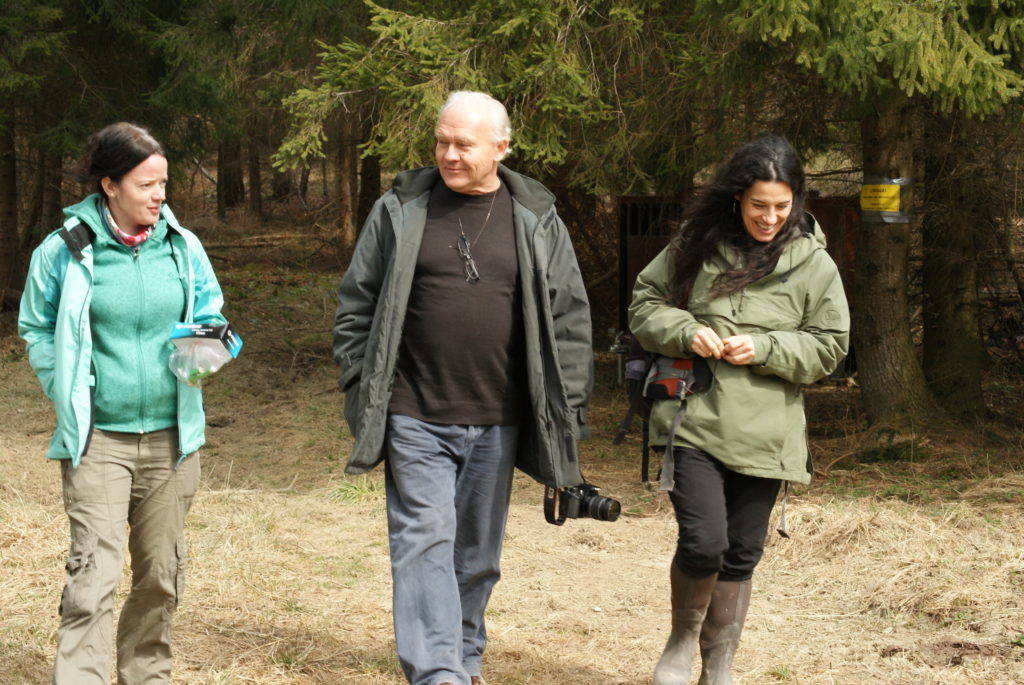“POLONEZ has contributed to improving the research capacity of the Institute of Nature Conservation of Polish Academy of Sciences, as well as to its excellence and competitiveness”, says Prof. Nuria Selva, from the Institute of Nature Conservation PAS. She was a Research Partner to Prof. Djuro Huber under the MSCA POLONEZ fellowship “Wildlife health in human-shaped environment: integrating multiple indicators to assess the status of brown bear populations”.
How did you establish your cooperation with Professor Djuro Huber?
Prof. Huber has been collaborating with our team for more than a decade now. He supported us during the preparation of the management plan for the brown bear in Poland, unfortunately not yet implemented, and during the field work of the GLOBE project, focused on the effects of climate change on brown bear populations. We have always been in touch; however, POLONEZ provided the opportunity for the first time to conduct a research project together.
What are the main aims of the Carpathian Brown Bear Project?
We started this initiative 10 years ago, when the scientific knowledge of brown bears in Poland was very limited, with the aim of disseminating science-based information related to bear ecology and management, mostly from our research activities. Brown bears are intelligent animals, very plastic behaviourally and amazing from a physiological point of view. The species is present across the northern hemisphere (North America, Europe, and northern and central Asia), and many of the regions inhabited by bears are experiencing rapid climate change and are increasingly affected by human activities, such as road construction, tourism development, forest degradation or hunting. Thus, brown bears are a good model species to investigate the effects of global change from a wider perspective.

Brown bears are present both in the Carpathians and the Dinarides. Is their situation similar in both locations?
In some aspects the situation is similar. For instance, bears from both populations are artificially and intensively fed, which is changing the ecology and behaviour of bears – their hibernation patterns, movements and diet are greatly altered. While bears in Croatia are fed at feeding sites to facilitate bear hunting, in Poland they are not the target of feeding, but they intensively use the food provided for ungulates, such as corn or beetroots. In both cases, they are becoming ‘fast-food’ bears, and this may have consequences for their health as well. We gathered information about the practice of artificial feeding and other large carnivores in Europe and led the approval of a statement on this practice by the IUCN/SSC Large Carnivore Initiative for Europe. This initiative translated into the Recommendation no. 198 of the Council of Europe – Standing Committee of the Bern Convention. Thus, this international cooperation will allow us to tackle research questions at larger scales across populations and assess how ‘healthy’ are bears in populations with different human pressures and human footprint levels in the environment.
What is the biggest benefit for the Carpathian Brown Bear Project from being Prof. Huber’s Research Partner?
For the entire team it is a privilege to have Prof. Huber integrated on a daily basis. His deep knowledge on bears and practical experience is unique and learning from an experienced researcher like him is a luxury. Prof. Huber, being both a vet and a biologist, has complemented our research lines well by adding the health perspective. Thanks to his project we can now integrate data from pathogens and toxicants with data on physiological stress levels, immune response or nutritional status of individual bears across populations with different human pressures. By integrating all these measures we aim to provide a health index for bear populations. This will be an innovative tool to assess the conservation status of populations, currently based only on the numbers of bears or the area occupied by them.
How about the greatest challenge?
The COVID-19 pandemic has interrupted the normal progress of the project. Now, our main challenge is to finalize all the laboratory analyses planned in BearHealth on time. On the other hand, the pandemic has made us more aware of the risks of artificially concentrating wildlife in Chinese markets, but also at artificial feeding sites in Europe, which may become a hotspot for disease transmission. The closure of Tatra National Park was an unplanned experiment that we used to collect samples to study the level of physiological stress in different species without visitors and compare with levels after the lockdown. Unfortunately, the closure was too short (1 month) to investigate other potential effects of tourism on wildlife.
What have been the highlights of the POLONEZ programme?
The POLONEZ programme has offered a unique opportunity to consolidate collaborations with foreign research teams. Another main highlight is that funding offers the possibility to conduct a research project in Poland led by recognised foreign researchers. By promoting knowledge transfer and broadening of existing research lines, POLONEZ has contributed to improving the research capacity of the Institute of Nature Conservation of Polish Academy of Sciences, as well as to its excellence and competitiveness.
Prof. Nuria Selva, Institute of Nature Conservation, Polish Academy of Sciences, Kraków
Prof. Nuria Selva is a conservation biologist specialized in trophic and community ecology, with a special focus on large carnivore ecology and conservation. She is also interested in global change effects on ecosystems and species and in conservation policies and management backed by science. She lives in Białowieża Forest, at the Polish-Belarusian border, the last primeval temperate forest in Europe.
The interview was originally published in 2020 in The POLONEZ experience – why it matters.
